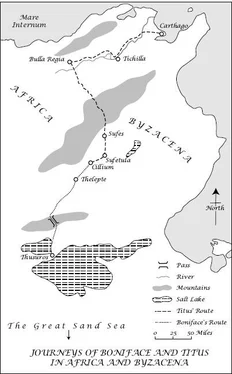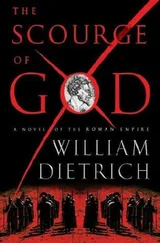Ross Laidlaw - Attila:The Scourge of God
Здесь есть возможность читать онлайн «Ross Laidlaw - Attila:The Scourge of God» весь текст электронной книги совершенно бесплатно (целиком полную версию без сокращений). В некоторых случаях можно слушать аудио, скачать через торрент в формате fb2 и присутствует краткое содержание. Жанр: Исторические приключения, на английском языке. Описание произведения, (предисловие) а так же отзывы посетителей доступны на портале библиотеки ЛибКат.
- Название:Attila:The Scourge of God
- Автор:
- Жанр:
- Год:неизвестен
- ISBN:нет данных
- Рейтинг книги:5 / 5. Голосов: 1
-
Избранное:Добавить в избранное
- Отзывы:
-
Ваша оценка:
- 100
- 1
- 2
- 3
- 4
- 5
Attila:The Scourge of God: краткое содержание, описание и аннотация
Предлагаем к чтению аннотацию, описание, краткое содержание или предисловие (зависит от того, что написал сам автор книги «Attila:The Scourge of God»). Если вы не нашли необходимую информацию о книге — напишите в комментариях, мы постараемся отыскать её.
Attila:The Scourge of God — читать онлайн бесплатно полную книгу (весь текст) целиком
Ниже представлен текст книги, разбитый по страницам. Система сохранения места последней прочитанной страницы, позволяет с удобством читать онлайн бесплатно книгу «Attila:The Scourge of God», без необходимости каждый раз заново искать на чём Вы остановились. Поставьте закладку, и сможете в любой момент перейти на страницу, на которой закончили чтение.
Интервал:
Закладка:
‘Did he really have to die, Father?’ Carpilio fought to keep his voice from breaking.
The general placed a hand on his son’s shoulder, which was shaking with the boy’s suppressed sobs. ‘Some day you’ll understand,’ he said gently. ‘As long as it stays strong and brave, a people will survive. Just so long — no longer. We Romans should remember that.’
The love and admiration Carpilio felt for his father were joined by a disturbing intruder. Fear.
FOUR
Athaulf himself was badly wounded in the assault [on Marseille, in 413], by the valorous Boniface
Olympiodorus of Thebes, Memoirs, c. 427General Flavius Aetius, Master of the Horse in Gaul, second-in-command in Italy, and now (thanks to the hold his Huns had given him over Placidia) Count, was in a sanguine mood as he rode home from the imperial palace. His campaign against Boniface was going better than he’d dared to hope. So well in fact that, less than an hour ago, Placidia had promised him that the imperial summons recalling Boniface from Africa would be on its way by fast courier that very afternoon.
Boniface: virtual ruler of Africa, and commander of all its forces; terror of the barbarians; friend of the clergy, especially Augustine, the saintly Bishop of Hippo; loyal champion of Placidia, sticking by her during her exile in Constantinople and the usurper Ioannes episode. The Count of Africa was now the only obstacle between Aetius and supreme power in the West. It had ever been thus in the Roman world (or in either of the two Roman worlds that now existed), the general reflected. There had never been room for two rivals to co-exist: Scipio v . Cato, Octavian v . Marcus Antonius, Constantine v . Maxentius, Placidia and Valentinian v . Ioannes. And now Aetius v . Boniface. For the victor, either the purple or command of the army. For the loser, death. (A vanquished rival, always a potential focus for disaffection, was too dangerous to be permitted to live.)
Yet what was at stake was immeasurably more significant than a personal vendetta, Aetius thought, the pounding rhythm of his horse’s hoofbeats somehow conducive to the free flowing of ideas. It involved nothing less than the proper governance, and perhaps even the survival, of the Western Empire. For all his good points (and he had many, Aetius conceded, courage and magnanimity being the most outstanding), Boniface lacked the ruthless will and clarity of vision demanded of whoever ruled the West. His unshakeable loyalty to Placidia would ensure that, should he gain power at the expense of Aetius, he would share it with the Augusta, like some latter-day Mark Antony to Placidia’s Cleopatra. And that would be disastrous for Rome. Placidia’s priorities were narrowly dynastic, and her indulgent treatment of Valentinian, who already showed signs of a weak yet vicious nature, would mean power eventually transferring to an unstable degenerate.
‘When did it all go wrong for Rome, old friend?’ he murmured to Bucephalus, feeling the muscles bunch and flow beneath him as the great horse ate up the miles in an effortless canter. ‘You were not born when it started, and I was but a boy.’ His mind flashed back twenty years to that fatal crossing of the Rhenus 1by a Germanic confederation, which had brought about a fundamental change in Rome’s stance regarding the barbarians: accommodation rather than exclusion.
The consequences today of that mass invasion had been cataclysmic. With its field forces withdrawn to Gaul, Britain was under attack from Saxons, Picts, and Scots from Ireland; Hispania was overrun by Suevi and Vandals and, for the time being at least, virtually lost to the empire. But Africa and Italy were still secure, and so, if precariously, was most of Gaul. It was of vital importance that whoever ruled the West should shape his strategy according to the new realities. Constantius, Honorius’ co-emperor, had coped superbly, pacifying the powerful Visigoths by granting them, after their many years of wandering, a homeland in Aquitania, 2and halting the Burgundian encroachment into imperial territory, just west of the Rhenus. But Constantius was dead these six years, and Rome’s federate ‘guests’ grown restive once again. The former north-south axis of power, Mediolanum to Augusta Treverorum, 3had gone for good, thanks to the increase of Frankish raids into the Belgic provinces. The new axis was east-west, Ravenna to Arelate in Provincia, 4a situation which he, Aetius, was well placed to exploit re his ability to influence the government.
‘Who would you choose to rule the West, my beauty,’ he chuckled to Bucephalus, ‘myself or Boniface?’ The horse’s ears pricked up as if in empathy. ‘You might be wise to pick the Count of Africa. For if your master wins, one thing is sure — cavalry will be hard-used as never before.’
Boniface was the last person who should hold the reins of power. His approach to dealing with barbarians was head-on confrontation, an outdated strategy almost bound to fail. The tribes settled within the empire were too entrenched and numerous to be removed by force — unless the West received massive military backing from the East. Which wasn’t going to happen; those days had ended with the death of Theodosius. He, Aetius, on the other hand knew barbarians, having in his boyhood been a hostage first of Alaric, then of the Huns. He could sense when it was politic to make concessions to them and when to apply pressure, the right moment to be diplomatic, or to take an uncompromising stand. And he fully grasped one all-important fact: the power of barbarians could often be neutralized by pitting them against each other; Huns against Visigoths, Visigoths against Suevi, et cetera. This called for skill and cunning based on understanding of the barbarian mind — something he, Aetius, possessed in abundance, his rival not at all. Boniface was good at killing barbarians; of handling them, he knew little and cared less.
As in a game of ludus latrunculorum or ‘soldiers’, Aetius reviewed the relative strengths and weaknesses of himself and his rival as regards the coming struggle. On the surface, Boniface appeared to have one supreme advantage, the confidence of Placidia. But Boniface was in Africa, whereas Aetius was here in Ravenna, able to exert all his considerable charm and powers of persuasion to poison the Augusta’s mind against her favourite. By posing as her devoted friend and ally (even to the extent of being pleasant to the royal bratling), he had, over the past few weeks, gradually melted her hostility and won her trust. This had enabled him to undermine Boniface by means of hints and innuendo, reporting ‘rumours’ that he was secretly plotting against her and stirring up sedition among courtiers and army officers. And his efforts had now been crowned with success, it would seem.
Boniface was too honourable and trusting for his own good, Aetius thought with a twinge of conscience. Totally loyal and incorruptible himself, the Count of Africa was naive enough to ascribe those qualities to those in whom he put his trust. What he failed to understand — and herein lay his great weakness — was that most men (and women) were weak and could be manipulated, given enough pressure or inducement. Yes, politics was a dirty game; there were times when Aetius found it hard to avoid feeling self-disgust at his involvement in its machinations. But the end, so long as it merited achievement, could usually be made to justify the means, even when that involved deceit and betrayal. And, if he were honest, Aetius loved it all: the excitement of pitting his cunning and resources against a worthy adversary; the thrill of combat; the heady joy of victory.
Arriving at his villa, Aetius flung Bucephalus’ reins to a groom, and strode through the suite of halls to the tablinum — more office than library, in his case. As usual, the place was in chaos, with books, papers, and accoutrements, scattered everywhere in disorder. Not that he could blame the house-slaves; he had given strict orders that, basic cleaning apart, the room should remain undisturbed in order to preserve the integrity of his ‘system’. The books were mainly on military matters: Vegetius (an idiot who conflated tactics from the time of Trajan and Hadrian with those of the present); On Matters of Warfare , an interesting treatise by an anonymous author on army reform, advocating greater use of machines to save manpower; a precious copy (updated) of the Notitia dignitatum , a government list of all key offices of state for both empires, including military posts and the units under their command.
Читать дальшеИнтервал:
Закладка:
Похожие книги на «Attila:The Scourge of God»
Представляем Вашему вниманию похожие книги на «Attila:The Scourge of God» списком для выбора. Мы отобрали схожую по названию и смыслу литературу в надежде предоставить читателям больше вариантов отыскать новые, интересные, ещё непрочитанные произведения.
Обсуждение, отзывы о книге «Attila:The Scourge of God» и просто собственные мнения читателей. Оставьте ваши комментарии, напишите, что Вы думаете о произведении, его смысле или главных героях. Укажите что конкретно понравилось, а что нет, и почему Вы так считаете.












